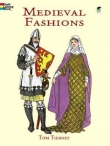
Текст книги "The Book of Q"
Автор книги: Jonathan Rabb
Жанр:
Триллеры
сообщить о нарушении
Текущая страница: 22 (всего у книги 28 страниц)
SPIRITUS
six
Pearse steadied himself, watching as Ivo sang. He heard nothing but a dull humming in his ears.
“So do I stretch out my two hands toward You,
All to be formed in the orbit of light.…”
Ivo turned to him; the boy was saying something. Pearse tried to hear, even as the walls seemed to constrict, the air heavier with each breath. Still, Ivo stared up at him.
“When I am sent to the contest with darkness
Knowing that You can assist me in sight….”
Pearse felt his hand press against the wall, the chill of the stone offering an instant of release. The tiny voice broke through: “… if you know it?”
Pearse drove his nails into the stone, the pain forcing air into his lungs. The walls began to retreat, another chance to hear the boy.
“Why don’t you sing if you know it?” Ivo repeated.
Pearse felt himself nod. The five-line entries. A child’s first prayer. So obvious.
From somewhere within the haze, he found the words. “‘The fragrance of life is always within me.’”
Ivo smiled and sang:
Ivo smiled and sang:
“O living water,
O child of light.
O name of glories
In truth do I find You.
In search of a truth.
That tells of Your might!”
Pearse joined in: “‘Eeema, Eeema, Ayo.’”
Salko sings it with me.Pearse crouched down, forcing himself to concentrate. “Salko taught you that song?”
Ivo nodded.
The confirmation was somehow more devastating than the initial shock.
“I know another one.” Ivo smiled. “Not as well. We sang it for Radisav. Salko says I have to learn it without a book. Do you want to hear it?”
There was nothing to do but nod.
Once more, the sweet soprano let forth: “‘It is from the perfect light, the true ascent that I am found….’” He hesitated. “‘That I am found …’”
“‘In those who seek me,’” Pearse continued, his own familiarity with the prayer a momentary diversion from his staggering disbelief.
“‘In those who seek me,’” Ivo repeated, nodding. “Right. You know it, too.”
Another nod.
“‘Acquainted with me, you come to yourselves,’” Ivo sang, “‘wrapped in the light to rise to the onions-’”
“‘Aeons,’” Pearse corrected, his head beginning to clear.
“‘Aeons,’” Ivo repeated. “That’s about all I know. What are aeons?”
“Emanations of the unknowable,” Pearse heard himself say, rote response from a mind not yet willing to confront what was standing in front of him. When he saw the look of confusion on Ivo’s face, he tried a smile. “I’m not really sure myself. So Mommy and Salko taught you those songs?”
Another look of confusion. “Mommy?” A quick smile, eyes wide. “They’re only for Salko and me. He says they’re our special secret. Did he teach them to you, too?”
Pearse had no response. There was too much racing through his head to process it all: Salko appearing out of the blue, handling the men at Kukes-no menace, no Vatican-the church bombings, the telephone call, the trace.
Pearse tried not to condemn himself for what now seemed such obvious stupidity.
But Salko, a part of this … and for how long? A picture of Slitna fixed in his mind. How could he accept that? How could he accept that Ivo …
He might have collapsed from the weight of the last half minute if not for Ivo staring at him, waiting for an answer. Another instant of brutality, this time dispensed at the hands of an innocent, Ivo’s gentle smile, his tiny hand clasped in Pearse’s. Songs, not prayers. Words, not ideology.
“Yes,” Pearse said. “Salko taught them to me, too.”
He had an overpowering desire to cradle Ivo, hold him to his chest, hide him from a threat he couldn’t possibly understand-its most tangible form wandering the village, looking for the boy.
Salko.
Crippling as the thought was, Pearse knew he needed to move. He needed to get them out of here.
He squeezed Ivo’s hand, picked him up, and headed for the stairs.
Halfway down the steps, Pearse realized the hohxahadn’t been at the table. In fact, he hadn’t been anywhere. The same held true downstairs. Pearse quickly moved across the room. Setting Ivo down, he slowly opened the front door and saw the empty road leading up to the village. Stepping back into the shadows, he knelt in front of the boy.
“So you never talked to Mommy about those songs?” he asked, peering into the little eyes.
Ivo’s smile disappeared-a look of pure concentration. “No,” he finally said. “Salko said I couldn’t.”
The boy’s expression was more than enough to convince. Pearse nodded, a wink. “Then I’m sure you didn’t.”
Ivo’s smile returned.
“So now the three of us have a secret,” Pearse said as he picked Ivo up again. He moved to the door and slowly opened it.
Just as he was about to step outside, Ivo placed a hand on his cheek. “I’m glad you know the songs,” he said.
Pearse stopped. For a moment, everything beyond them seemed to disappear. “Me, too.” He then moved out through the door.
Less than ten feet up the main road, however, he suddenly realized he couldn’t chance running into Salko with Ivo in tow. There’d be no way to keep them all from getting into the car and driving off-no way to separate themselves from Salko. And whatever else might have been running through his head, Pearse knew he had to view Salko as nothing more than an immediate threat. There would be time enough to try to understand the implications later on.
Making sure the road remained empty, he moved back to the side of the house and set Ivo down.
“How about a little adventure?” Pearse said.
Ivo’s eyes lit up.
“And how about we make this one into a game?”
No less excited, Ivo asked, “What kind of game?”
“One where we surprise Salko.”
“Salko!” The raw enthusiasm of a seven-year-old bubbled to the surface; Ivo’s little hands pulled up to his mouth to stifle the near explosion of laughter. “That’d be great.”
Again, Pearse winked. “Then that’s what we’ll do.”
Pearse knew the game was more for himself than for the boy. Leading on a UN guard, the man from the bus, or even the Austrian had been one thing. Salko knew him better than that. And, given his old friend’s apparent predilection for deception, Pearse also knew the Croat would sense something. Keeping his own focus on Ivo was Pearse’s only hope.
He took the boy’s hand and began to lead him down the hillside, behind the houses on the main road. Ivo skipped as he walked, every so often grabbing Pearse’s side when he began to lose his footing. They made their way through tiny gardens, a few clotheslines, one or two low stone walls, until they came to the back of a house Pearse guessed to be within striking distance of the van. He peeked around the corner. Close enough. No more than twenty yards from them, Petra stood by the van’s now-closed door, Salko at her side. The look on her face had grown to one of genuine panic.
He stepped back and crouched by Ivo. Any hint of anxiety quickly faded as he looked into the smiling eyes.
“Okay, here’s what we’re going to do,” he whispered.
Again, Ivo’s hands drew up to his mouth, the anticipation almost too much.
“I’m going to go to the car and talk to Salko and Mommy. I want you to watch me. If you lie on your tummy and crawl to the corner of the wall, I think you can see the car.” Ivo dropped down and inched his way out. “Can you see the car from there?”
He looked back up at Pearse, giving him a big smile and a nod.
“Okay.” Pearse pulled him back, then looked directly into his eyes. “But you have to wait here until I give you the signal to come out.” He demonstrated with a big wave. “Only when you see me give the signal can you come out.” He waited for Ivo to nod. “And then I want you to run as fast and as quietly as you can up to the car.”
Again, Ivo nodded. “Boy, will Salko be surprised!”
“No sound. Otherwise, he’ll know.”
“No sound.”
Pearse winked, waited for Ivo to take his position, then backtracked behind two of the houses-he couldn’t chance them catching sight of Ivo, no matter how remote the possibility. Just before heading up to the main road, he glanced back; he could still see Ivo, prone on the ground, wirelike limbs outstretched, waiting. Pearse slipped around the side of the house and started up the road. As he passed the house where he had left Ivo, every instinct told him to check on the boy, but he knew he couldn’t. Petra’s voice was a welcome relief.
“Salko didn’t find him, either,” she said as she moved out to him. “He-”
“I found him,” said Pearse, drawing up to the van. Before either of them could ask, he continued. “He’s in the holy man’s hut. For some reason, he wanted to see the boy who died yesterday.”
It was clear from Petra’s reaction that this wasn’t the first time Ivo had shown such a morbid interest.
“The problem is,” Pearse continued, “our friend from dinner last night wasn’t that eager to let me in with the body still there. Something to do with Catholic priests and Muslim corpses. I wasn’t going to argue with him. He said you should come and get him.” He nodded to Salko.
Petra started to go; Pearse quickly grabbed her arm. “He said Salko. He was pretty adamant about it.”
“Janos can get that way,” said Mendravic with a nod. “I’m sorry if he-”
“Don’t worry about it,” said Pearse, aware that he was having trouble looking Mendravic in the eye. Instead, he looked at the ground and nodded.
Salko squeezed his neck. “I’ll be back in five minutes.”
He headed off down the road.
“You can let go of my arm now,” said Petra.
Pearse turned to watch Mendravic move past the houses.
“I said you can let go of my arm.”
When he was certain that Mendravic was out of earshot, Pearse released her, his eyes still on the retreating figure. “Get in the car,” he said under his breath.
“What?”
He turned to her. “Get in the car,” no kindness in his tone.
“Ian, what are you-”
“In thirty seconds, Ivo is going to come running out from behind that house. Get in the car.”
Petra tried to look past him to the house; Pearse took hold of her arm again. “Did you hear what I said?” The intensity in his stare was enough to hold her. “ Getin the car.”
“What about Salko?”
“We’re not taking Salko. If you want Ivo, get in the car.” He paused. “You have to trust me.”
Whatever she saw in his eyes was enough to send her to the door on the passenger’s side. She opened it and sat.
Pearse turned back, to see Mendravic disappearing behind a curve in the road. He waited another five seconds, then turned and raised his hand high, waving it in a wide, sweeping motion. At once, the little figure of Ivo darted out from behind the house and began to race toward them, his tiny arms pumping away. Within seconds, he was in Pearse’s arms; another few, and he was on his mother’s lap. No time to explain. Pearse shut the door and moved around to the driver’s side.
He had just opened the door, when he looked back and saw Mendravic racing up the road, remarkable speed for a man his size. Only then did Pearse see the stooped figure of the hohxatwenty yards behind him.
The old man had found Mendravic, a warning from the Brotherhood, too late to stop them.
Pearse pulled the keys from his pocket and leapt into the front seat. Within seconds, he was grinding the car into gear, the sudden burst of movement drowning out the shouts from behind. A winded Mendravic appeared in the rearview mirror, the figure more and more distant, clear enough, though, to see a tiny phone being brought to his ear.
Visegrad… They’ll definitely be in Visegrad.
Salko’s prediction now all but a certainty.
White smoke.
The throng in St. Peter’s erupted, Kleist once more high above on his private perch. The spillover down the Via della Conciliazone reached almost to the river, over 100,000 bodies pressed against one another in anticipation of a single phrase: “Habemus Papam!”It would be severalminutes before the dean of the College of Cardinals would step out to the balcony, time enough for the masses to build themselves into a good lather. Kleist had to hope it was von Neurath who was waiting in the wings.
Once again, he pulled the small device from his pocket and flipped open the screen. He pressed a button. Dial tone. Within half a ring, the line picked up.
“Have the dogs cleared?” Kleist asked.
“Eight minutes.”
“I want the chessmen on the board until we have confirmation.”
“Understood.”
“Hold them until the king retreats. They move as a unit. The king stays on the board until the rest are back in the box.”
“Understood.”
Kleist paused. “Double the coverage on the Campane. No access to anyone, passes included.”
“Understood.”
He cut the line. He’d been the one to dub their quarry the “chessmen”-bishops, cardinals, it made little difference. Pawns this afternoon. Keeping them in the Palace until after the Pope’s address was simply the best way to buy himself a little extra time. The men at the arch? A chance to dilute the crew inside the hospice still further.
The dean emerged. An almost eerie silence fell over the 100,000 bodies.
“We have a Pope!” A thunderous roar exploded, the dean holding his hands high in an attempt to quiet the crowd. Even the microphone had no chance, the introduction of the supreme Pontiff lost to the constant clamor: “His Holiness, Pope Lucius the Fourth.”
Had anyone asked, von Neurath had actually considered the far more obscure Zephyrinus for several weeks. Not so much for anything Zephyrinus had done, but for his timing. Pope in 216. The year a child had been born near the city of Seleucia-Ctesiphon on the Tigris, the capital of Persia. His name, Mani. The Paraclete. The hope of the one true and holy church.
In the end, Lucius had won out. Harbinger of the light. Far more appropriate.
Kleist watched through binoculars as the former Erich Cardinal von Neurath-clad in the white soutane and skullcap, emblems of his office-stepped out onto the balcony, his arms already in the classic pose of pious authority. He swept the air in narrow circles as if he were somehow breathing in the scent of spirituality. The noise of the crowd managed to reach even greater decibels, waves of sound echoing throughout the colonnades, von Neurath already comfortable with his preening humility.
Kleist turned his attention to the arch. The two extra men had taken up their positions. Like all good Catholics, they were crossing themselves, waiting for their new Pope to begin the Apostolic Blessing.
Fourteen minutes, start to finish. That was what von Neurath had promised. After that, eight minutes for the cardinals to be led back to the Sanctae Marthae.
Kleist picked up the package and headed for the door. He was now on his own timetable. Four minutes to the hospice, twelve minutes to set the plastique, four minutes to return.
Which left him a two-minute grace period.
The Harbinger of the Light always liked to keep things as tight as possible.
“Where’s Salko?” Ivo said.
Once again, the seven-year-old was asking the most obvious question. And once again, Pearse was totally unprepared for it. Keeping his eyes on the road, he said, “Salko … is …”
“Staying in the village,” Petra cut in, pulling Ivo closer to her chest.
“What about the surprise?” he asked.
“What surprise?” she said.
“The one we’re going to play on him.”
Pearse heard the disappointment in his voice. “Actually, he-”
Before Pearse had finished, Ivo’s eyes lit up. “Oh!” he whispered. He turned to the glass partition and slid it back.
“Hello, Salko,” he shouted, straining against his mother so as to peer into the back of the van. “I know you’re back there.” He waited. “You thought you were going to get me because I thought I was surprising you.” He looked at Pearse, a big smile on his face. “You’re pretty good at this.” Before Pearse could answer, Ivo was back at the partition, howling away at the unseen Salko. “Hellooooo. I got you. You can come out now.”
Petra brought him back to her lap. “Sweetie, Salko isn’t there. I told you, he stayed in the village.”
Ivo broke free again, his head deep into the opening. “Come on. I know you’re here.” When it slowly sank in, Ivo became very quiet. “Why? Why isn’t he here?” He sat back on Petra’s lap and looked across at Pearse. “You said we’d surprise him. You said he’d be here.” Pearse could hear the first hint of genuine sadness in the little voice. “Why isn’t he here?”
“He had to stay in the village to help his friends,” said Petra, holding him closer.
“But why didn’t he say good-bye?” The words were now choked.
“It all happened very quickly, sweetie,” Petra said. “He didn’t even say good-bye to me. I think he needed to help his friends right away.”
“Why?”
Petra looked over at Pearse. “I don’t know. Sometimes Salko has to help his friends, and sometimes he has to leave without telling us.”
“But he didn’t leave.” He lifted a hand to stem the first tears. “We did.”
“I know, sweet pea. I know.” She cupped his head to hers. “But we’ll see him soon.”
“I didn’t say good-bye.” His words were now muffled in his mother’s neck. “I didn’t say good-bye.”
She began to rock him.
Ten minutes of silence passed before Pearse spoke.
“I didn’t have a choice,” he said.
Petra waited before answering. “Is he asleep?” she whispered.
Pearse glanced over at the little boy. The morning had obviously taken its toll. Pearse kept his voice low, as well. “Close enough.”
“Don’t ever use my son as a threat again,” she said.
The quiet severity of her tone stunned him. It took him a moment to respond. “What?”
“You said if I wanted to see him, I had to get in the car. Don’t ever do that again.”
Another few seconds to understand what she was saying. “No. I didn’t mean-”
“Yes, you did.” She let the words sink in before asking, “Now what’s going on? Why did we leave Salko back there?”
“It’s … complicated.”
“Try me.”
He waited. He had no idea how to make sense of the last twenty minutes; and as much as he wanted to trust Ivo, he had to make sure. “‘ Sic tibi manus meae intendeo,’” he said.
“What?”
“‘Omnes fingi in gyro lucis.’”
“What are you saying? I told you, I’m no good with Latin. Stop it,” she demanded, her anger mounting.
“You have no idea what I’m talking about, do you?”
“No, and now you’re frightening me. Why did we leave Salko back there?”
He kept his eyes on the road. He was having trouble admitting it to himself. “Because he’s involved with this.”
“So are you,” her tone no less pointed then before.
“That’s not what I meant. He’s after the parchment. That’s why he showed up in Kukes.”
“A part of it?” The confusion momentarily softened her tone. “You’re telling me he’s a …” She couldn’t find the word.
“Manichaean,” Pearse said. “Yes.”
“That doesn’t make any sense.”
“Neither does Ivo being able to recite a seventeen-hundred-year-old prayer that very few people have ever even heard of. But he did.”
“Ivo?” Confusion turned to shock.
“‘So do I stretch out my two hands toward You, all to be formed in the orbit of light.’ In the Latin, ‘ Sic tibi manus…’ He told me Salko taught it to him. It’s one of their secrets. He’s obviously very good at keeping them.”
Pearse knew exactly what she was feeling at that moment-disbelief, betrayal, an utter sense of helplessness. He knew because he was still feeling them himself.
“I can’t …” She continued to stare. “Ivo doesn’t … He barely knows any of the prayers at church.”
Pearse pointed to his pack by her feet. “Open it.”
“What?”
“Just open it.”
She hesitated, then reached across the sleeping child and picked up the pack.
“The little book with the rope tie,” he said. “It’s about fifteen pages in.”
She did as she was told. She flipped past Ribadeneyra’s brief history until she found the entries.
“There,” he said, quickly glancing over. “Try the fifth line, then the eleventh.”
She read. “I can’t believe Ivo knows this.”
“Then ask him. Wake him up.” Emerging from a series of back roads, they arrived at a deserted intersection, the first promise of paved surface. A sign for the main highway peeked out from behind a tuft of trees. Pearse headed west.
Petra stared at the page, then back at Pearse.
“Ask him,” he repeated.
She continued to stare. When she realized he wasn’t going to relent, she very gently placed a hand on Ivo’s cheek, bending close into his ear.
“Ivi, sweetie,” she whispered. “If you sleep now, you won’t sleep tonight.”
The boy breathed in heavily, a slight turning of his neck.
“Come on, sweetie. You have to get up.”
Another long breath as two tired eyes blinked in Pearse’s direction, a tiny hand to rub them as the boy straightened up.
“Are we going home?” The nap had done little to improve his mood.
Petra looked at Pearse. “I don’t know, sweetie.”
Pearse didn’t have an answer, either.
Holding the book at her side, she did her best with the Latin: “‘ Sic tibi manus meae intendeo…’”
Ivo immediately sat up in her lap, quickly turning to his mother. His look of surprise was almost comical. Just as quickly, he turned to Pearse. “You told her,” he said, disappointment now verging on anger.
“No, she’s reading it.”
Ivo flipped around, only now seeing the book in her hand. “Let me see.”
“Be careful, sweetie. It’s very old.”
“I know, I know. Salko told me.” Ivo waited for his mother to bring the book closer. He then looked back at Pearse. “That’s not the book.”
“Let him see the words,” said Pearse.
Ivo turned. Petra pointed to the lines in the text.
“What are all the other words?” he asked.
“They’re … other songs,” Pearse answered. “They-” Cutting himself short, he quickly glanced over at Ivo. “What book did Salko tell you was old?” he asked.
“The book with the songs,” Ivo answered.
“I thought you weren’t allowed to write them down.”
“That’s only ‘Perfect Light.’ I have a whole book of the other ones.”
A child’s first prayer. Part of a prayer book. Of course. Eyes on the road again, he asked, “Does Salko have that book?”
Ivo shook his head. “No. He gave it to me. When I turned six. Everyone gets one when they turn six. You know that.”
“Right.” A Manichaean primer for initiates. What else could be more obvious? “And you still have the book?” Pearse asked.
Ivo nodded.
“What are you talking about?” asked Petra.
“Where’s the book now?” Pearse said, ignoring her.
“At home,” Ivo answered.
Pearse started nodding to himself.
“What?” asked Petra.
“It’s how he made sure,” he said to himself.
“What are you talking about?”
“Ribadeneyra picked that prayer to make sure that the person who figured out his puzzle was one of them. A Manichaean. Who else would know the child’s prayer? Who else would-” He suddenly slammed on the breaks. All three lurched forward.
“What are you doing?” she screamed, one hand around Ivo, the other strong-arming the dashboard.
“There are lots of prayers in that book, aren’t there, Ivo?”
The little boy didn’t seemed bothered in the least by the sudden stop. “Prayers and pictures and puzzles.” He turned to Petra. “Salko says when I learn enough of them, I can start doing the puzzles.”
Now it was her turn simply to nod.
“It’s something in that book,” Pearse said. “Otherwise, why use the prayer? Something only a Manichaean would know to look for. Something to explain the other Ribadeneyra entries.”
Forgetting Salko for the moment-and everything else that had happened in that last half hour-Pearse jammed the car into gear.
They’d be expecting them in Visegrad. Not Rogatica.
He checked his watch. With any luck, they’d be there by midafternoon.
Peretti heard the explosion, then felt the tremor. His hand immediately went to the wall, one or two picture frames tipping over on themselves from atop his bureau, a painting on the wall losing its nail. A second explosion. Then a third.
Pushing himself to the window, he peered out, the source of the eruption rising in flame no more than a hundred yards from him.
The Domus Sanctae Marthae.
Holy Mother of God.
Through the smoke and fire, he tried to locate the upper floors, now little more than jagged cavities of glass and stone. Inside the Vatican. Not possible. He crossed himself, a prayer for those inside.
The words were barely out of his mouth when he suddenly realized how close he had come to being one of them himself. The decision to return to his apartments had been a last-minute one; even then, it had taken a mighty harangue to convince the guards to let him go. The order had been for all the cardinals– all.
He reached for the phone, only to be drawn to the sight of the first survivors stumbling from the building, their clothes torn, limbs and faces darkened by residue or blood-he couldn’t tell which. There were more than five or six of them, each one falling to the ground, except for the last, who continued to wander aimlessly, lost in a concussed haze, strangely graceful amid the havoc. The others faded into the background as the pinballing man came into focus, unseen barriers sending him this way and that. It lasted less than four or five seconds; a guard arrived to gather him in, the man’s legs still churning even as he was helped to the ground.
Arbitrary movements, thought Peretti, disconnected-at least from the vantage point of reasoned thought. For the man himself, though, the actions had had meaning, purpose-understood only by a mind lost to the shock.
Just as the mayhem itself had meaning. The question was, Whose mind had inspired it?
He picked up the phone.
The door behind him suddenly flew open. Two men raced in, guns drawn.
“It’s all right,” Peretti said, recognizing them. “I’m fine.”
Both men holstered their guns. “We should take you to the Gabbia, Eminence, just in case.”
The Gabbia, short for Gabbia per Uccelli-the birdcage-had been a bomb shelter during the war, six floors below the library, now transformed into the Vatican’s safe house for just such occasions.
Peretti nodded. “I should make some calls first.”
The nearer of the two men took the phone. “There are over a hundred lines downstairs, Eminence. We should go now.”
Nodding, Peretti followed them out.
“You were lucky, Eminence,” said the man now trailing him. “They think over a hundred of the cardinals were inside when the bombs went off. Whoever did this knew exactly when to set them off.”
One more nod.
Who indeed.
Pearse sat in the car, hands clasped in his lap. Ivo was doing the same in the passenger seat. Neither had said a word for the last ten minutes.
He had parked in an alley almost a quarter of a mile from the apartment-on Petra’s instructions. Remarkable how quickly she had been able to take everything in stride, the freedom fighter once again in control. Or maybe it was simply a maternal instinct. No matter. She had been equally clear about who would be going for the book.
“You stay here.” A kiss for Ivo as she’d opened the door.
Pearse had started to follow, Petra quick to stop him. “I was talking to you. You don’t know the area. You don’t know the apartment. And if they are here, they know exactly what you look like.” Stepping outside, she’d turned to him, her voice with an intensity he hadn’t heard in years: “And don’t let Ivo out of your sight. Understand?”
The boy had obviously been through enough of these sorts of situations to know when to stay put.
A confirming nod from Pearse had sent her on her way.
That had been almost fifteen minutes ago.
Now, glancing over at his charge, Pearse couldn’t be sure just exactly which of his transgressions was prompting the silence: the flight from Salko, the absence of Petra. Most likely, it was the forced disclosure of the book’s location. Petra’s tone had been sufficient to unlock Ivo’s secret: a box hidden behind a loose slat in his closet. Salko had evidently helped him to make it.
“Do you think you might ever stop being mad at me?” Pearse finally asked.
Ivo crossed his hands at his chest.
“Can I take that as a maybe?”
The boy clenched his arms even tighter, a snort of air through his nose.
“Okay-a maybe, with a big hug and a very quiet sneeze. Am I getting close?” Silence.
“Don’t try to make me happy,” Ivo finally said.
“Okay.” Silence. “How about I try to make you orange?”
Ivo shot him a glance, his expression somewhere between anger and confusion. “Orange?”
“Well, you won’t let me apologize and make you happy, so I thought I could make you orange.”
Ivo’s arms loosened. “How do you make someone orange?”
“I have no idea. But at least it won’t be making you happy.”
Ivo stared at him for a few seconds, then turned away. “That’s silly. You don’t make any sense.”
“Then how about you let me say I’m sorry?”
Without looking at him, Ivo answered, “You shouldn’t have made me tell. It was my secret with Salko. And you shouldn’t have made us leave Salko. Salko wouldn’t have made me tell Mommy.”
“I know,” said Pearse, watching as Ivo began to play with a rip in the door’s vinyl.
“If it’s so important,” the boy said, “why didn’t you give Mommy yourcopy of the book?”
Even angry, Ivo was still a very clever little boy. “Well … because your book is special. It’s going to help us find another special book. And I know Salko wants us to find that other book.”
“Then why didn’t he tell you where my book was?”
Very clever.
“Because,” said Pearse, retrieving the Ribadeneyra volume from the dashboard, “he didn’t know I had this book.”
Ivo slowly turned to him. Only slightly less ruffled, he said, “The one Mommy read from.”
“Right,” said Pearse. “Do you want to take a look at it?”
“I saw it already. When Mommy had it.”
Pearse nodded slowly. “Okay. I was just wondering if you wanted to hold it. But if you don’t …”
Ivo stared at the book, then glanced up at Pearse. “I guess I could.” He took the book. “But don’t think this is making me happy. You still shouldn’t have made me tell.”
“Fair enough.”
For a seven-year-old, Ivo showed tremendous care with it, turning back the pages slowly and peering at the words with great concentration. If nothing else, Salko had taught him how to appreciate his past. His was a child’s Latin, enough to pronounce everything correctly, even if he didn’t understand most of what he was saying. He stopped at one point, eyes wide. He turned to Pearse, pointing to a word he recognized.
“ Manichaeus,” he said
“Yes, Mani.” To hear Ivo say it with such reverence tore into him. “You know a lot about Mani, don’t you?” he asked.
“I guess. I know the stories from my book.”
“The stories about Mani.”
Ivo nodded.
“Have you read all of them?”
Another nod. Ivo placed the Ribadeneyra on the dashboard and began to count out on his fingers: “‘The Apostle of Light,’ ‘Shapur the King,’ ‘Sowing the Corn,’ ‘Kartir in Darkness,’ ‘Finding the Light.’”








